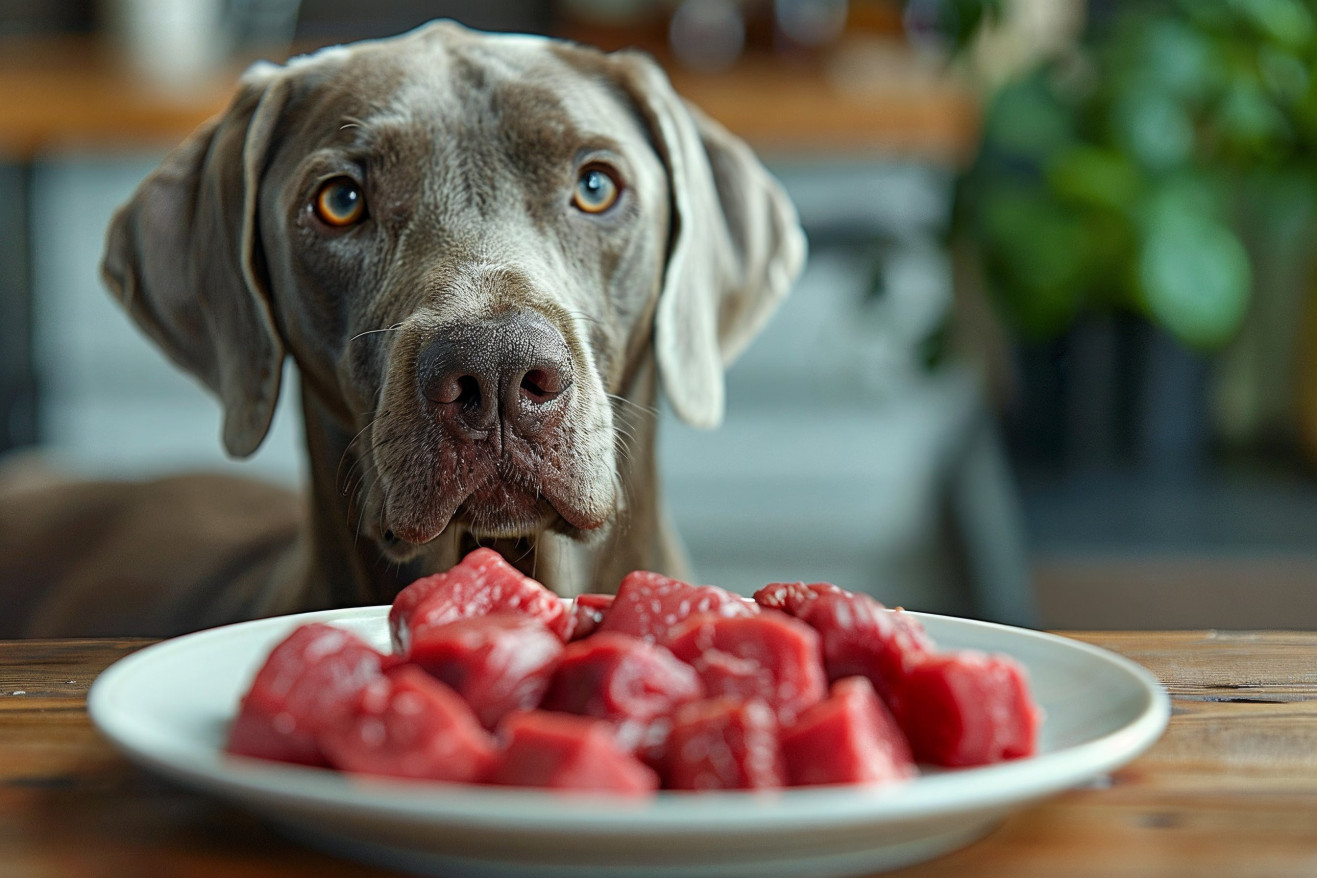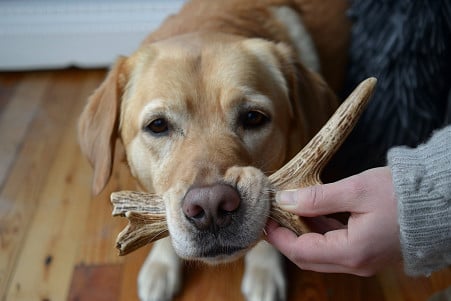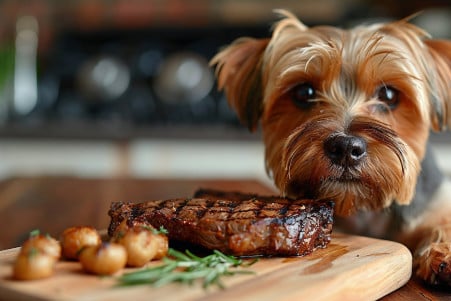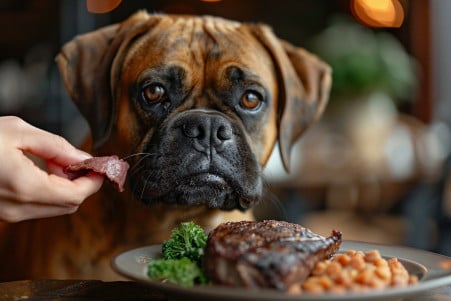Can Dogs Eat Venison? The Ins and Outs of This Healthy Game Meat
6 April 2024 • Updated 5 April 2024

If you’re a dog owner, you may have asked yourself whether or not it’s safe and healthy to feed your pet an alternative protein like venison. Venison is a lean meat that’s packed with nutrients and low in fat, making it a great option for dogs when consumed in moderation, as long as it’s cooked thoroughly and you make sure to remove any bones that could be a choking hazard.
In this article, we’ll take a look at a number of different studies on dog nutrition and the potential benefits of venison to help you better understand the nutrients it has to offer and how you can safely add this game meat to your dog’s diet. We’ll cover everything from the right ratios of protein, fats, and other nutrients that should be included in a dog’s diet to detailed information on how dogs digest and absorb the nutrients in venison.
Can dogs eat venison?
Nutritional Benefits of Venison for Dogs
Venison is a great source of high-quality protein, which is important for dogs' muscle growth and maintenance. It provides all of the essential amino acids that dogs can only get from their diet. Venison is also packed with vitamins like B12, B6, riboflavin, and niacin, which help with different bodily processes and a healthy metabolism.
Research has shown that venison is a good source of minerals like iron, zinc, and phosphorus - important for blood health, immune health, and bone health, respectively. Plus, venison's low fat content and leanness means it's a good option for dogs that are overweight and need to lose weight, or dogs with heart issues who need to reduce their fat intake.
Venison is also a great source of omega-3 fatty acids, which can help dogs maintain healthy skin and coats. Omega-3 fatty acids also help with brain and cognitive health. Given its many nutritional benefits, venison can be a great addition to a well-rounded dog diet if it's sourced and prepared properly.
How to Feed Venison to Your Dog
Venison is a good choice for dogs with allergies to more common proteins like beef or chicken. Because it's a novel protein, venison is less likely to cause an allergic reaction. Kabo recommends that you introduce venison slowly and watch for any signs of an allergic reaction when you're switching to a new protein.
While raw venison can be healthy, Recipes.net says that cooked venison is generally safer because raw meat can contain bacteria and parasites if it hasn't been handled properly. To ensure that your dog gets all of the nutrients it needs, Venison Dog Food says that venison should account for no more than 20-25% of your dog's daily food consumption.
Most homemade venison dog food recipes include other ingredients like vegetables, grains, and supplements to make sure that the food is nutritionally complete and balanced. The Just Food for Dogs recipe includes a special nutrient blend to make sure that it meets AAFCO standards. It's a good idea to talk to your vet before you switch your dog to a new protein or a homemade diet.
Venison and Dog Food Allergies
As with humans, dogs can develop allergies or sensitivities to common protein sources like beef, chicken, or lamb. Per Kabo, venison is a novel protein and therefore less likely to cause an allergic reaction in dogs that are allergic to other types of meat. The Wagwalking.com article notes that symptoms of a meat protein allergy in dogs can include skin problems such as dermatitis, as well as vomiting and breathing difficulties.
It’s important to introduce venison gradually and watch for any negative side effects when switching to a new protein source. Addiction Pet recommends that pet owners consult their vet, especially if their dog has a history of severe food allergies or anaphylactic reactions. However, with careful monitoring, pet owners can potentially help their dogs find relief from problematic meat allergies by introducing venison into their diet.
Potential Risks and Concerns of Feeding Raw Venison
Although raw venison can be a healthy choice for dogs, there are some potential risks to be aware of. The Dog Food Advisor forum explains that raw venison can carry bacteria, parasites, or other contaminants that can lead to illness if the meat isn’t handled and frozen properly. K9sOverCoffee warns that it’s important to freeze raw, wild venison for 3 weeks before feeding it to dogs to kill any potential Trichinella parasites.
Older or immunocompromised dogs may have trouble digesting raw meat and may be more susceptible to complications. Friends of the Dog points out that dogs with compromised immune systems or older dogs may struggle to digest raw venison. Feeding dogs raw venison requires a commitment to food safety, including cleaning surfaces and utensils thoroughly.
It’s important to talk to a vet and get their input before adding raw venison to a dog’s diet. Friends of the Dog recommends that pet parents buy raw venison from a supplier that’s registered with the Department of Agriculture to ensure the meat is safe and disease-free. Proper handling and preparation are essential for minimizing the potential risks of feeding dogs raw venison.
Final Thoughts: Navigating the Feasibility of Venison for Dogs
Venison can be a healthy and helpful part of a dog's diet if it's introduced and fed in the right way. It's low in fat and high in protein, vitamins, and minerals, which can be especially helpful for dogs with specific dietary requirements. Since it's a novel protein, venison can also be a good choice for dogs with food allergies or sensitivities.
However, it's important to handle, cook, and introduce venison to your dog properly to ensure that it's safe and that your dog can tolerate it. You should also talk to your vet and make sure you're feeding your dog a balanced, complete diet when you add venison or any other new food to their meals.


